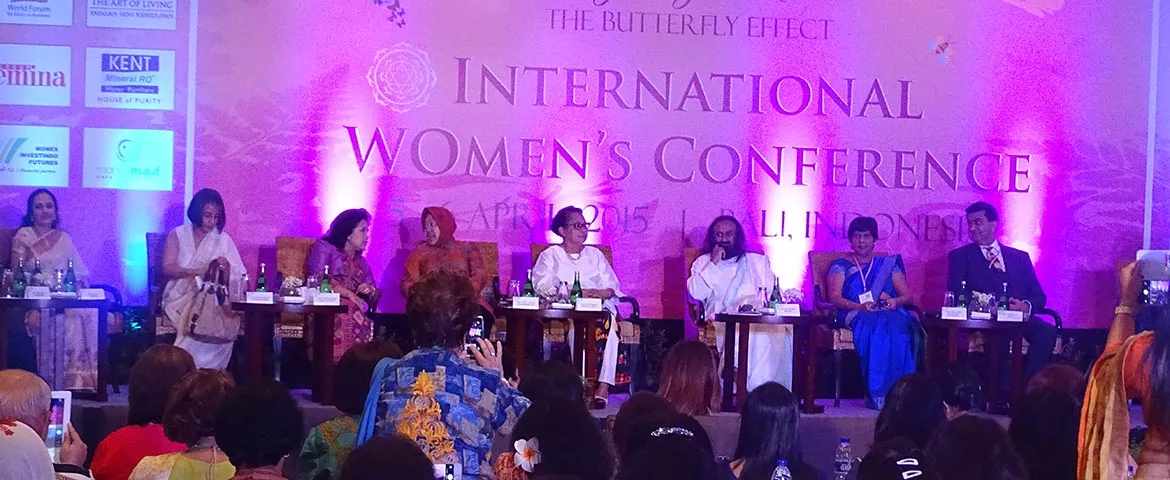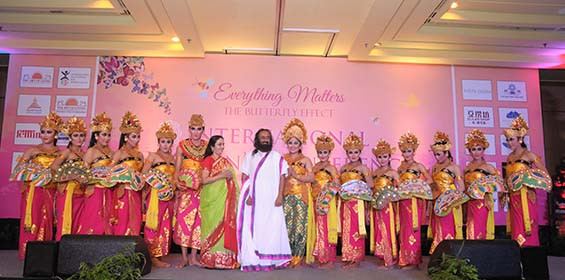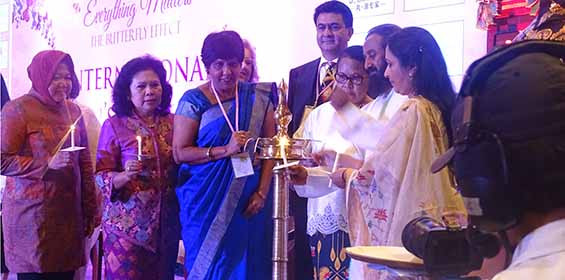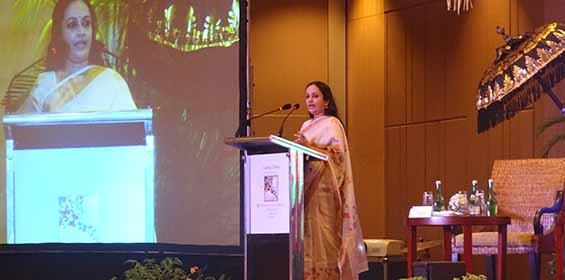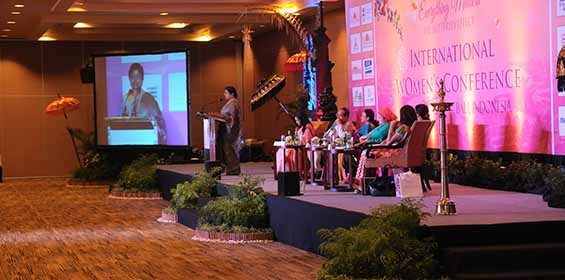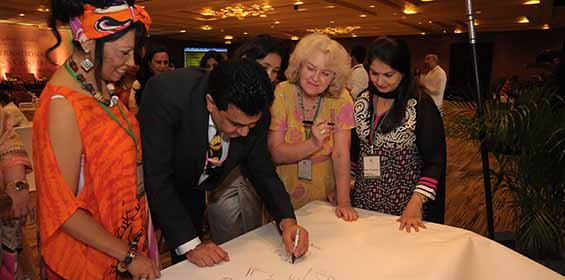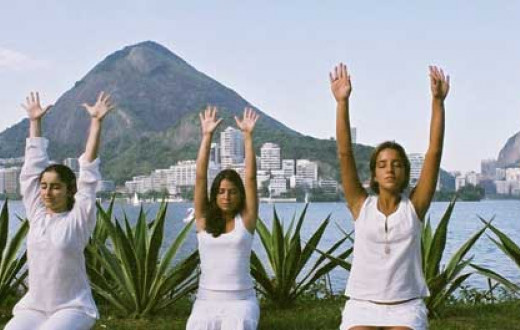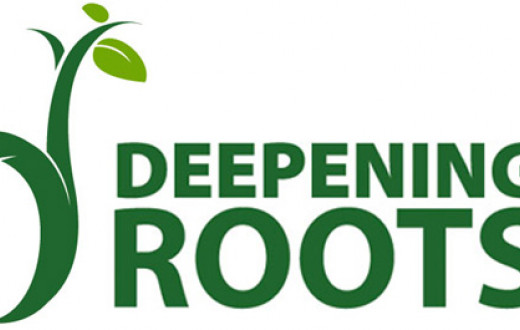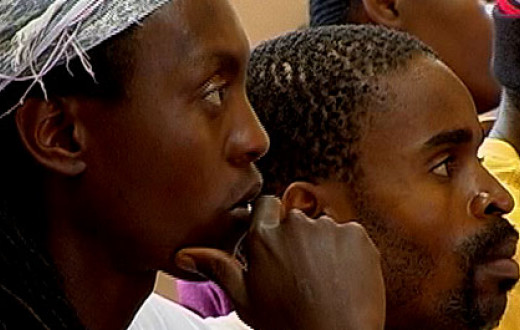Excerpts from the Speech of Professor Maithree Wickramasinghe Founder Director, Centre for Gender Studies, University of Kelaniy
Members of the panel, distinguished guests, sisters and friends - Many of us from urban societies tend to see a world as being confronted by a clash in values that pose a threat to ethical living.
On the one hand we are persuaded by the dominant values of globalization whether we like it or not transmitted via the worldwide mesh of mainstream media like cable TV, internet and social media and markets, technology, travel and tourism.These values amongst others privilege and prioritize capitalism, materialism and consumerism as well as social status, competition, success as well as the culture of fashion , beauty celebrities and the satiation of ones senses. On the other hand we are correspondingly guided by indigenous civilizations transferred by our family and social conditioning, civilizations that may have evolved over centuries and which may have as their key values notions of ethnic identity history, family, cultural traditions, patriotism or nationalism and insularity as well as purity, spirituality, religiosity as well as what is considered to be sacred. Now note that I am not saying that one is better than the other. While we may give precedence to the values arising from either the local or global as individuals nonetheless we cannot avoid being influenced by both and in designing our lives accordingly even if it means contradictorily even if challenged by ethical dilemmas of what is right and what is wrong. For instance let us talk about the valorisation of motherhood and fatherhood in modern society as examples of good values. How can one ethically be a good mother or a good father? You will note that values both motherhood and fatherhood predominantly understood and are practiced according to traditional gender roles with greater burden being on women to fulfil their mothering roles as opposed to fathers their fathering roles. You will agree with me then that there are is thus distinct gender differences in the valuation of these roles. Ethical conflicts arising from gender differences are no more patently evident than in the case of parenthood in the families of women migrant workers. I take that as an example. Firstly the values attributed to male migration workers are positive as against female migration. We often find these women serving as the bulwark of the family in many labour exporting countries. Secondly if women migrant workers happen to have children they are denigrated and attacked in many of our countries for leaving their children behind. In contrast to male migrant workers who are not held up to such high ethical standards of parenthood. This is very often, inspite of the decision of the women to migrate is often a collective family decision and maybe due to contemporary economic pressures as well as family problems. Now if children left in the care of the fathers are neglected, abandoned or if they are molested there again it is the mothers who are censured and not the abusive or neglecting fathers conveying a discriminatory double standard. No doubt the issue of migrant worker have many other ethical proportions from harassment in labour receiving countries to binding bilateral agreements aimed at labour protection from labour skilling to women empowerment but most importantly recognizing and demanding responsible fatherhood and holding fathers accountable for their families. It is therefore important to understand that our ethical perspectives of what we consider as right and what we consider as wrong are not abstract. They originate in power and privilege and they located and they are relative and at the end of the day they are loaded. They are loaded with other values of gender inequalities, ideologies and politics. Thus as discussed with my example it is especially important to reflect on the ethics of values. In other words what happens when values are put into practice. Depending on the context and whether it is a man or a woman who subscribes and cultivates them. Yet as noted earlier never has ethics been more challenged by external forces as today’s world of global living and local tension and their impact on personal values as demonstrated by my earlier illustration of migrant women. Consequently how are women leaders to reconcile themselves with ethical practices or ethical living in an increasingly complicated world. Let me offer you a few thoughts based on feminist ethics. As women leaders we need to re-examine and reassess these social values, religious doctrines, political ideologies and even ethical codes of living that have hitherto been seen as unassailable certainties. In doing so we need to consider whether these values are based on the moral experience of women or they do in practice depreciate, dislocate or denigrate a women's experiences. In addition do they in practice marginalize the experiences of those who are considered poor , those who are considered to be different and those who are considered to be powerless. Indeed do they in practice degrade the environment and earth’s ecology? As women leaders we also need to ensure that adequate moral value is attributed to the work traditionally performed by women. Such as caring for children, families, the sick and the elderly and the differently abled. But not in oppressive or exclusive ways, not in ways that are detriment to women's own individual rights and individuality. Moreover the same ethical standard of care has to be demanded from men. And finally as women leaders we need to devise practicable ethical strategies for all of us to deal with the quandaries surfacing both in the public domain as well as private spheres of us as individuals. So let us remember that often ethical living is not easy. In fact ethical living involves loss. Whether it is loss in terms of one’s ego or its loss in terms of financial profits or it is loss in terms of emotions of friends or families and perhaps of loss even in terms of love. In summary then we need to rethink, revise, reformulate new ethical perspectives not only on philosophy and religion but also on contemporary, moral and political life and let’s not forget on public policy as women leaders, and we need to transform these values into ethics and integrate them into our daily activities and long term practice. And as thissession encourages us to believe that every thought and every act will matter in the long run. I must thank Guruji and Ms Bhanumathi Narasimhan as well as the conference organizers in India and Bali for inviting me and hosting me on this occasion. This year too I am grateful for an opportunity to reflect on an issue that is of critical importance to all of us, Ethics which should ideally be at the forefront of our consciousness. Thank you .
